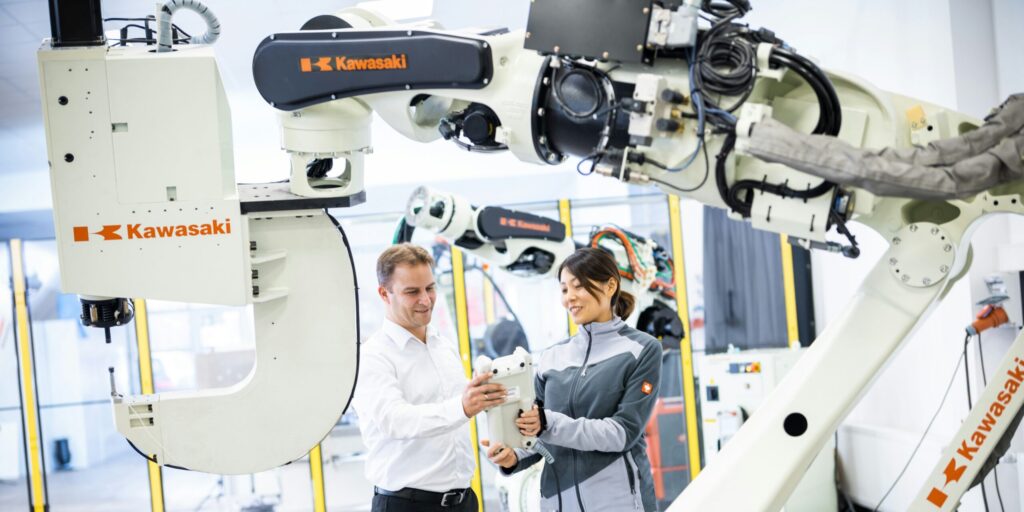The U.S. manufacturing industry is witnessing a transformative surge in productivity, driven by the widespread adoption of artificial intelligence (AI) and automation technologies in 2025. According to a recent report published by the Manufacturing Institute in May 2025, companies integrating AI-powered robotics, machine learning algorithms, and predictive maintenance tools have increased operational efficiency by an average of 18% compared to 2023.
Technological Integration Transforming Production Lines
Leading manufacturing firms across automotive, electronics, aerospace, and consumer goods sectors are harnessing AI to optimize production processes. Smart robots equipped with advanced vision systems perform intricate assembly tasks, while AI software monitors equipment health in real time to anticipate failures, reducing downtime dramatically.
For example, automotive giant AutoDyn deployed AI-driven quality control systems in its Michigan plants, resulting in a 25% reduction in defect rates and 15% increase in throughput. Similarly, electronics manufacturer MicroTech adopted AI-based supply chain analytics, improving inventory management and reducing lead times by 20%.
Economic Implications and Workforce Evolution
The integration of AI automation is revitalizing U.S. manufacturing, attracting capital investment and enhancing global competitiveness. Industry analysts estimate that AI adoption could contribute an additional $150 billion to manufacturing output by 2030.
However, this technological shift necessitates workforce adaptation. Companies are investing heavily in upskilling and reskilling programs to equip workers with digital and technical competencies required to collaborate with AI systems.
Dr. Helen Carter, director of the Manufacturing Institute, emphasized, “The future of manufacturing lies in the synergy between human expertise and AI capabilities. Ensuring equitable workforce transitions is vital.”
Challenges and Ethical Considerations
While AI offers efficiency gains, concerns regarding job displacement and data privacy persist. Industry leaders advocate for responsible implementation strategies that balance automation with human roles.
Ethical AI deployment also involves addressing algorithmic biases and ensuring transparency in decision-making processes on the factory floor.
Government and Policy Support
Federal initiatives, including grants and tax incentives, support AI adoption and workforce development. The Department of Commerce recently allocated $500 million for AI research and manufacturing modernization projects.
State-level programs in Michigan, Texas, and California are also fostering innovation hubs and training centers.
Looking Ahead
As AI technologies continue to evolve, manufacturers plan to integrate augmented reality, digital twins, and edge computing to further enhance production agility and customization capabilities.
The ongoing collaboration between academia, industry, and government aims to sustain momentum and foster inclusive growth.


